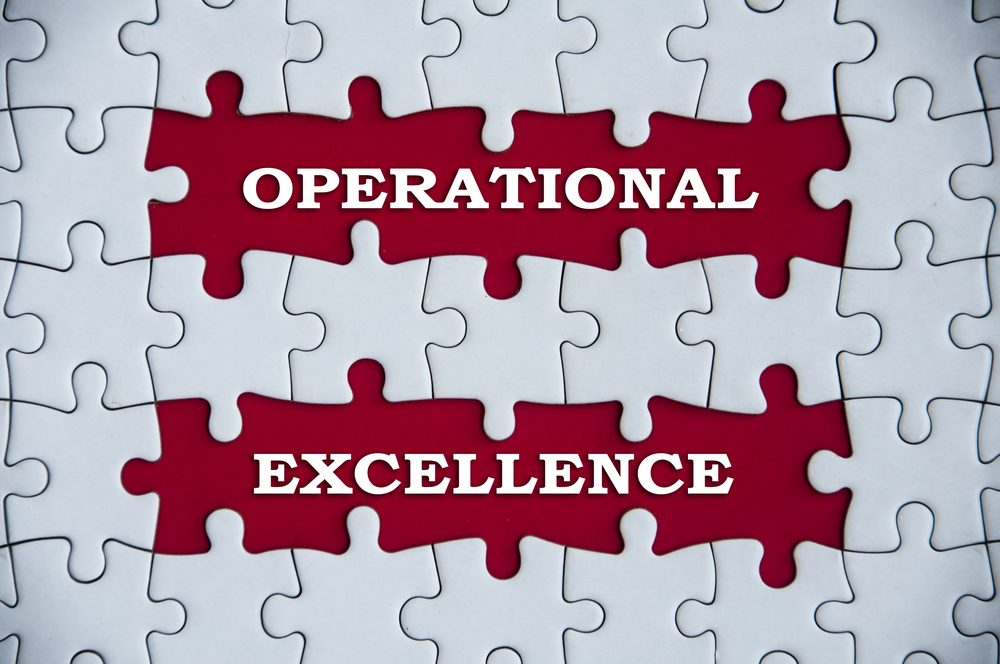Operational excellence is the unwavering pursuit of performance improvement, efficiency, and effectiveness. It's about executing a business strategy more consistently and reliably than the competition, as seen in organizations like Amazon, which maintains its supply chain's efficiency for customer satisfaction and retention. This guide will explain how to utilize process mapping, process reengineering, and KPIs to foster a culture of excellence and discipline within your organization and how Performance Management and Performance Dashboards can ensure these changes are implemented and ingrained.
Understanding Operational Excellence
Operational excellence is when the organization executes its business strategy more consistently and reliably than its competition. The results evidence this. Given its multifaceted nature, operational excellence is essential in various industries, whether manufacturing, healthcare, or technology. Operational excellence is vital across multiple sectors, from manufacturing to healthcare and technology. Its key components include:
- Process Mapping: It’s the visual representation of your business processes, showing the sequence of tasks and the flow of information. It’s the first step in understanding and improving your operational processes.
- Process Reengineering: This involves rethinking and redesigning how work is done to better support an organization's mission and reduce costs.
- KPI Utilization: Key Performance Indicators (KPIs) are the critical (essential) indicators of progress toward an intended result. They focus on strategic and operational improvement, create an analytical basis for decision-making, and help focus attention on what matters most.
Strategy Planning for Operational Excellence
Strategic planning for operational excellence begins with a clear understanding of your end-to-end processes and the desired outcomes. Leadership and management play a pivotal role in strategy planning. They must champion the strategy and create an environment where everyone is aligned and committed to the operational goals. Effective strategic planning is critical for achieving operational excellence. It involves:
- Aligning Strategy and Goals: Set clear, strategic objectives aligning with your operational excellence vision.
- Engaging Leadership: Ensure your leadership is fully committed to operational goals and communicates this commitment throughout the organization.
- Strategic Techniques: Use SWOTT and PEST(EL) analyses, scenario planning, and contingency planning to prepare for various business situations.
Deepening the Principles of Operational Excellence

Operational excellence is a strategic imperative that demands leaders to understand and implement core principles with rigor and precision. These principles uphold the structure of an organization's continual push toward efficiency and effectiveness.
Meticulously Identify and Deliver Value
- Customer-Centric Process Design: Engage in detailed mapping of customer journeys to understand the critical touchpoints and expectations. Tailor processes to enhance customer experiences, ensuring that every step adds value and aligns with what customers truly desire.
- Lean Methodologies: Embrace Lean methodologies to eliminate non-value-adding activities, reduce waste, and streamline processes. This increases value for the customer while driving down unnecessary costs.
- Value Stream Mapping: Utilize value stream mapping to visualize and understand the flow of materials and information as a product or service enters the value chain, identifying and addressing bottlenecks.
Harness Data-Driven Techniques for Superior Outcomes
- Advanced Analytics and Metrics: Implement advanced analytics tools to interpret large volumes of data. Develop metrics that matter—those closely linked to strategic goals and customer satisfaction.
- Quality Management Systems (QMS): Embed comprehensive QMS to uphold standards, encourage best practices, and facilitate continuous quality improvement, ensuring that every output meets the desired level of excellence.
- Root Cause Analysis: Apply root cause analysis to solve problems permanently rather than merely addressing symptoms, fostering a culture of deep problem-solving and sustainable improvement.
Implement Flexible and Agile Project Management
- Agile Methodologies: Adopt agile project management approaches to enhance adaptability, with teams that can pivot quickly in response to changing market demands or internal project dynamics.
- Iterative Development: Encourage iterative development cycles, allowing for incremental improvements to products and services, which can be tested and refined in real-world scenarios.
- Empirical Feedback Loops: Establish robust feedback mechanisms to capture learnings from every stage of the operational process, translating insights into actionable improvements.
Cultivate Inspirational Leadership at All Levels
- Visionary Leadership: Inspire a shared vision of operational excellence that permeates all levels of the organization, with leaders who articulate this vision and live it in their daily actions and decisions.
- Empowerment and Engagement: Empower employees by entrusting them with the authority to make decisions that affect their work, thereby fostering engagement and a sense of ownership over process improvements.
- Continuous Personal Development: Invest in developing leadership skills across the organization, ensuring that leaders at all levels are equipped to drive and support the journey toward operational excellence.
By delving deeper into these principles, organizations can build a robust foundation for operational excellence. It's not merely about adopting certain practices but about ingraining a philosophy that every member of the organization lives by, one that incessantly drives towards delivering supreme value, impeccable quality, and unparalleled flexibility—all under the aegis of visionary leadership.
Elevating Performance Management

At the core of operational excellence lies robust Performance Management, a strategic approach that integrates fundamental principles to ensure consistent achievement of business objectives. This system is the framework that allows an organization to:
Monitor and Optimize Performance
● Continuous Measurement: Implement a system of continuous performance measurement using a balanced suite of KPIs that reflect both short-term targets and long-term strategic goals.
● Benchmarking: Regularly benchmark performance against industry standards and past data to identify areas of improvement and track progress over time.
● Predictive Analytics: Leverage advanced analytics to predict future performance and trends, allowing for proactive adjustments and strategic planning.
Synchronize Innovation with Operational Efficiency
- Innovative Culture: Promote a culture that values creativity while upholding a high standard of operational discipline, ensuring that innovation drives value without compromising core operations.
- Google’s 20% Model: Emulate successful innovation models such as Google's 20% time policy, which allocates time for employees to pursue new ideas, fostering a balance between innovation and productivity.
- Efficiency Audits: Regularly conduct efficiency audits to evaluate how innovation initiatives affect operational efficiency and adjust accordingly to maintain a harmonious balance.
Enhance Decision-Making and Accountability
- Data-Driven Decisions: Equip leaders with real-time data and comprehensive dashboards to inform strategic decisions, ensuring that performance insights lead to actionable change.
- Transparent Accountability: Create transparent mechanisms for accountability where individuals and teams understand their impact on organizational performance, enhancing their sense of ownership and responsibility.
Foster a Culture of Continuous Improvement
- Feedback Loops: Establish feedback loops that not only track outcomes but also inform and modify strategies and tactics in an agile manner, reinforcing the principles of continuous improvement.
- Employee Engagement: Engage employees at all levels in performance discussions, encouraging them to contribute to operational improvements and innovations, thus driving collective progress.
By reinforcing these aspects of Performance Management, an organization can secure a competitive edge, transforming operational excellence from a concept into a tangible, measurable reality. It's about creating a synergy between human ingenuity and data-driven performance metrics, ensuring that every innovation aligns with and enhances overall business performance.
Building Organizational Discipline

Organizations must be disciplined to achieve the operational excellence strategic goals they have identified. Discipline is the factor that turns ambition into achievement. To build organizational discipline:
- Establish a Culture of Accountability: Make expectations clear and hold individuals and teams accountable for their contributions.
- Use Tools and Methodologies: Utilize performance dashboards to provide real-time insight into operational performance and manage by KPIs to maintain focus on what drives success.
Operational excellence is achieved through a relentless focus on improvement, innovation, and efficiency. By understanding and implementing process mapping, reengineering, and KPI utilization, you can ensure your organization remains competitive and resilient.
We'll guide you if you're ready to transform your operations. With personalized advice tailored to your business needs, we can create a sustainable path to operational excellence. Contact Sabacon Consulting for a consultation to explore the potential within your processes and strategies.

